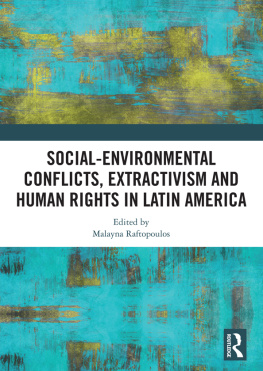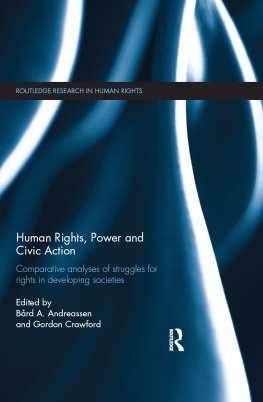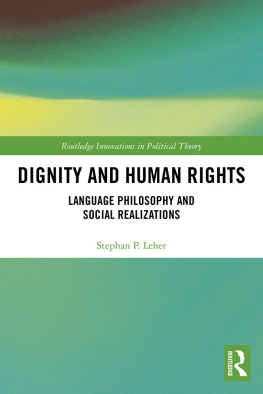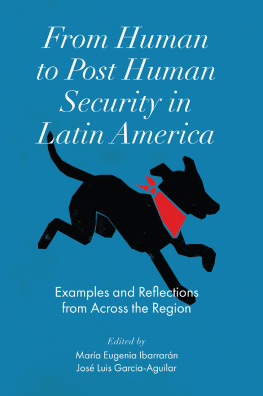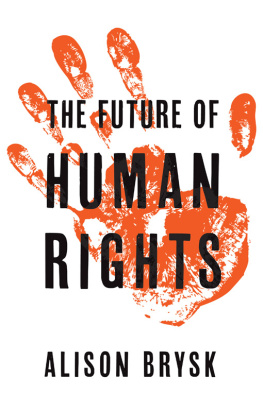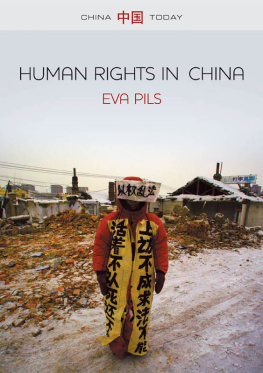Social-Environmental Conflicts, Extractivism and Human Rights in Latin America
This book focuses on the issues of global environmental injustice and human rights violations and explores the scope and limits of the potential of human rights to influence environmental justice. It offers a multidisciplinary perspective on contemporary development discussions, analysing some of the crucial challenges, contradictions and promises within current environmental and human rights practices in Latin America. The contributors examine how the extraction and exploitation of natural resources and the further commodification of nature have affected local communities in the region, and how these policies have impacted on the promotion and protection of human rights as communities struggle to defend their rights and territories. The book analyses the emergence of transnational activism in the context of collective action organised around socio-environmental conflicts, the infringement of basic human rights and the emergence of alternative and sometimes conflicting development models. Furthermore, it critically discusses why governments are often willing to override their commitments to sustainability and human rights to promote their development agenda.
The chapters in this book were originally published as a special issue in The International Journal of Human Rights.
Malayna Raftopoulos is an assistant professor in Latin American studies at Aalborg University, Denmark. She is also the co-editor of Provincialising Nature: Multidisciplinary Approaches to the Politics of the Environment in Latin America (Institute of Latin American Studies [ILAS], University of London).
Social-Environmental Conflicts, Extractivism and Human Rights in Latin America
Edited by
Malayna Raftopoulos
First published 2018
by Routledge
2 Park Square, Milton Park, Abingdon, Oxon, OX14 4RN, UK
and by Routledge
711 Third Avenue, New York, NY 10017, USA
Routledge is an imprint of the Taylor & Francis Group, an informa business
2018 Taylor & Francis
All rights reserved. No part of this book may be reprinted or reproduced or utilised in any form or by any electronic, mechanical, or other means, now known or hereafter invented, including photocopying and recording, or in any information storage or retrieval system, without permission in writing from the publishers.
Trademark notice: Product or corporate names may be trademarks or registered trademarks, and are used only for identification and explanation without intent to infringe.
British Library Cataloguing in Publication Data
A catalogue record for this book is available from the British Library
ISBN13: 978-0-8153-5372-0
Typeset in TimesNewRomanPS
by diacriTech, chennai
Publishers Note
The publisher accepts responsibility for any inconsistencies that may have arisen during the conversion of this book from journal articles to book chapters, namely the possible inclusion of journal terminology.
Disclaimer
Every effort has been made to contact copyright holders for their permission to reprint material in this book. The publishers would be grateful to hear from any copyright holder who is not here acknowledged and will undertake to rectify any errors or omissions in future editions of this book.
Contents
Malayna Raftopoulos
Joanna Morley
Radosaw Powska
Rickard Lalander
Marieke Riethof
John-Andrew McNeish
The chapters in this book were originally published in The International Journal of Human Rights, volume 21, issue 4 (May 2017). When citing this material, please use the original page numbering for each article, as follows:
Malayna Raftopoulos
The International Journal of Human Rights, volume 21, issue 4 (May 2017) pp. 387404
Joanna Morley
The International Journal of Human Rights, volume 21, issue 4 (May 2017) pp. 405441
Radosaw Powska
The International Journal of Human Rights, volume 21, issue 4 (May 2017) pp. 442463
Rickard Lalander
The International Journal of Human Rights, volume 21, issue 4 (May 2017) pp. 464481
Marieke Riethof
The International Journal of Human Rights, volume 21, issue 4 (May 2017) pp. 482499
John-Andrew McNeish
The International Journal of Human Rights, volume 21, issue 4 (May 2017) pp. 500516
For any permission-related enquiries please visit:
http://www.tandfonline.com/page/help/permissions
Rickard Lalander holds a PhD in Latin American studies from the University of Helsinki, Finland. Currently, he works as a lecturer in Development and Environmental Studies at Sdertn University.
John-Andrew McNeish is Professor of International Environment and Development Studies at the Norwegian University of Life Sciences (NMBU), Norway.
Joanna Morley completed an MA in Understanding and Securing Human Rights in 2015. Her published articles include Extreme energy, fracking and human rights: a new field for human rights impact assessments? (co-author) in the International Journal of Human Rights, and a book review of Human Rights From Community: A Rights-Based Approach to Development by Oche Onazi in the International Community Law Review. Her research interests include the human rights impacts on local communities of international development policies linked to natural resource exploitation, particularly focussing on Chinese investments in Latin America and Africa.
Radosaw Powska is a Latin Americanist working in the fields of politics and political sociology and anthropology. He received a PhD from the University of Liverpool, UK. He is professionally associated with the Center for Latin American Studies (CESLA), University in Warsaw, Poland. His Latin American research interests include ethnopolitics, social movements, indigenous rights and stateindigenous relations, political cultures and political innovations.
Malayna Raftopoulos is an assistant professor in Latin American studies at Aalborg University, Denmark. She is also the co-editor of Provincialising Nature: Multidisciplinary Approaches to the Politics of the Environment in Latin America (Institute of Latin American Studies [ILAS], University of London Press).
Marieke Riethof is a lecturer in Latin American politics at the University of Liverpool, UK. Her past research and publications focused on political strategies of the labour movement in Brazil, including the Latin American regional context.
Malayna Raftopoulos

This opening contribution to Social-Environmental Conflicts, Extractivism and Human Rights in Latin America analyses how human rights have emerged as a weapon in the political battleground over the environment as natural resource extraction has become an increasingly contested and politicised form of development. It examines the link between human rights abuses and extractivism, arguing that this new cycle of protests has opened up new political spaces for human rights based resistance. Furthermore, the explosion of socio-environmental conflicts that have accompanied the expansion and politicisation of natural resources has highlighted the different conceptualisations of nature, development and human rights that exist within Latin America. While new human rights perspectives are emerging in the region, mainstream human rights discourses are providing social movements and activists with the legal power to challenge extractivism and critique the current development agenda. However, while the application of human rights discourses can put pressure on governments, it has yielded limited concrete results largely because the state as a guardian of human rights remains fragile in Latin America and is willing to override their commitment to human and environmental rights in the pursuit of development. Lastly, individual contributions to the volume are introduced and future directions for research in natural resource development and human rights are suggested.

